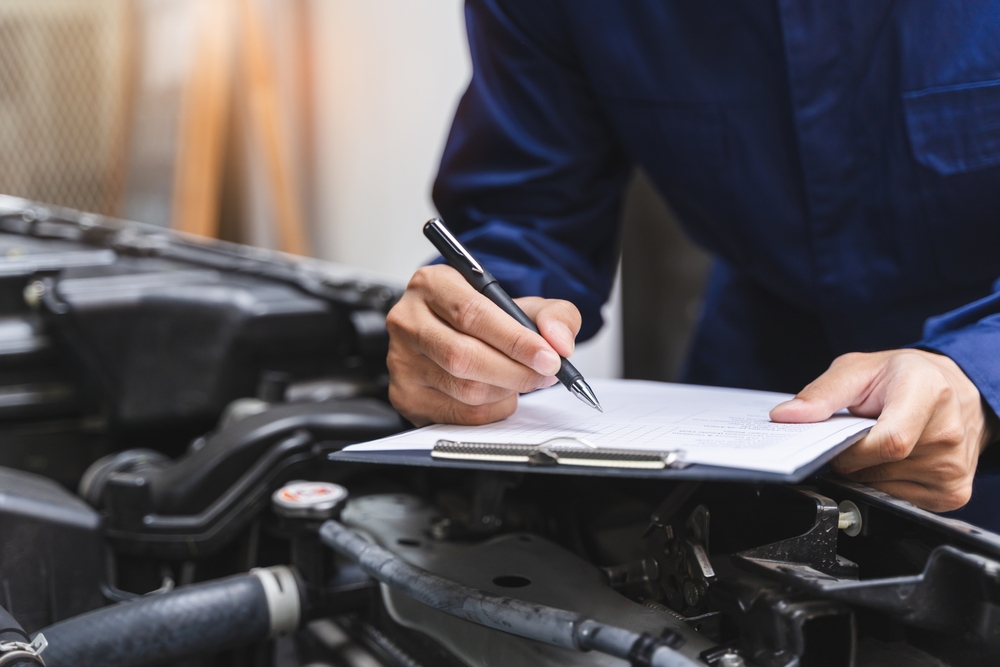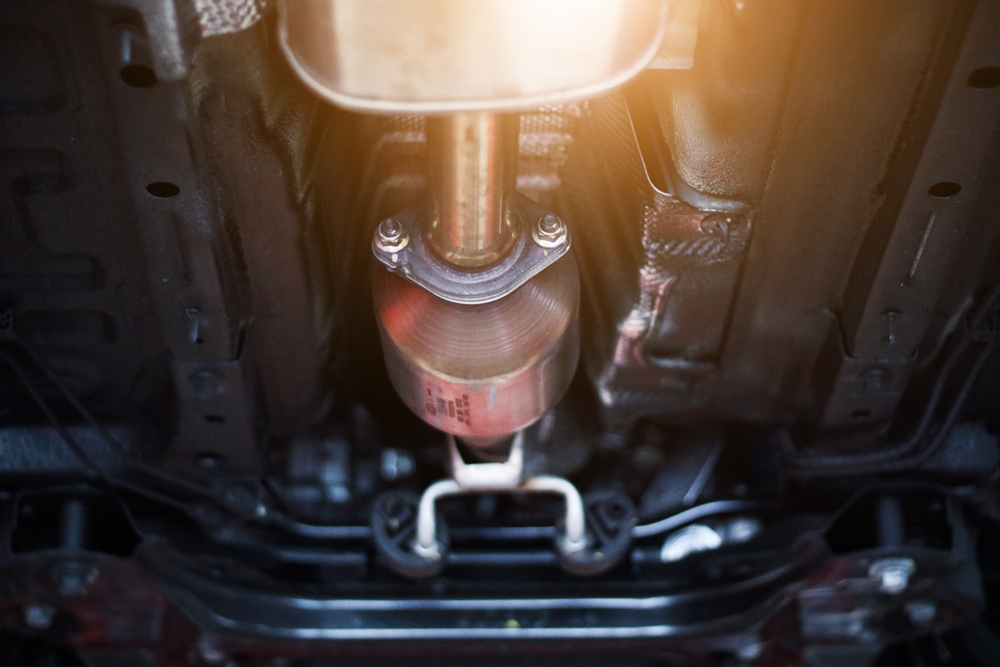The Importance Of Timely Emissions Tests
In the world of transportation, especially within the commercial trucking industry, emissions testing plays a vital role in maintaining compliance with environmental regulations, promoting cleaner air, and ensuring operational efficiency. As climate change and air pollution continue to capture public and regulatory attention, timely emissions tests are no longer a bureaucratic formality—they are a necessity. From small fleet owners to large logistics firms, every stakeholder in the industry must recognize the implications of failing to comply with emissions testing requirements. This blog explores the multifaceted importance of emissions testing, especially as it relates to commercial trucking, and underscores why timeliness is paramount.
Understanding Emissions Testing and Its Regulatory Significance
Emissions testing is a formal evaluation process that measures the output of pollutants from vehicle engines. This includes substances such as nitrogen oxides (NOx), particulate matter (PM), hydrocarbons (HC), and carbon monoxide (CO)—all of which contribute to environmental degradation and public health issues. Regulatory bodies such as the Environmental Protection Agency (EPA) in the United States and their counterparts worldwide enforce strict emissions standards, particularly for vehicles that contribute significantly to on-road emissions.
In the realm of commercial trucking, emissions testing takes on heightened significance. Commercial vehicles are on the road far more frequently and for longer distances than passenger cars. As a result, they contribute disproportionately to total vehicular emissions. To address this, most jurisdictions require periodic commercial trucking emissions testing to ensure vehicles meet defined pollution standards. Failing these tests can result in penalties, forced downtime, and in some cases, the decommissioning of the vehicle.
Governmental agencies continuously revise emission standards to keep up with technological advancements and environmental goals. Thus, staying ahead of emissions regulations through timely testing helps fleet operators avoid last-minute scrambles and ensures they are not caught off guard by changing requirements.
The Economic Impacts of Delayed or Failed Emissions Testing
One of the most pressing reasons for prioritizing timely emissions tests lies in their financial implications. When emissions tests are delayed or neglected, companies risk more than just regulatory fines—they expose themselves to operational setbacks that ripple throughout their entire logistics chain.
Commercial trucking emissions testing is often linked to vehicle registration renewals. Missing a scheduled test could mean a temporary suspension of registration, grounding a vehicle until it passes inspection. This leads to lost revenue, disrupted delivery schedules, and strained client relationships. Furthermore, when emissions tests are rushed or delayed until the last minute, there is often insufficient time to make necessary repairs if a vehicle fails, compounding the cost and extending downtime.
In contrast, proactively scheduling emissions testing gives operators time to address any mechanical issues that may arise, minimizing disruption. It also avoids premium charges from mechanics for expedited services and parts procurement. For larger fleets, even a single day of unplanned downtime for multiple vehicles can amount to thousands in lost earnings and client dissatisfaction.
Additionally, failing emissions tests can raise insurance premiums, damage a company’s safety rating, and hinder its ability to secure certain contracts, especially those involving environmentally conscious partners. In a competitive market, demonstrating consistent compliance through timely emissions tests can be a differentiator that wins business.
Environmental and Public Health Considerations
Beyond the financial and regulatory implications, timely emissions tests serve a crucial purpose in preserving environmental and public health. Vehicles that do not meet emissions standards release excessive pollutants into the atmosphere, contributing to smog, respiratory issues, cardiovascular diseases, and climate change. The transportation sector remains one of the largest contributors to greenhouse gas emissions globally.
Commercial trucking emissions testing ensures that vehicles operate as cleanly as possible. It confirms that emission control systems such as diesel particulate filters (DPFs), selective catalytic reduction (SCR) units, and exhaust gas recirculation (EGR) systems are functioning effectively. These systems are critical in reducing harmful pollutants from exhaust gases before they are released into the environment.
When tests are conducted on time, issues such as faulty sensors, degraded catalytic converters, or software glitches can be identified and rectified promptly. This not only ensures compliance but contributes meaningfully to reducing a fleet’s environmental footprint. Many jurisdictions now offer green incentives, tax breaks, or public recognition for companies that demonstrate a commitment to environmental stewardship through regular testing and reduced emissions.
The broader societal benefit is also noteworthy. In urban areas especially, where heavy-duty trucks frequently operate, reducing emissions translates into cleaner air and healthier communities. The trucking industry, by embracing timely emissions testing, can play a proactive role in combatting climate change and aligning with global sustainability goals.
Operational Efficiency and Vehicle Longevity
Another critical aspect of timely emissions testing is its role in optimizing vehicle performance and lifespan. Emissions tests are not just regulatory hoops—they are diagnostic tools that can detect problems that may not yet be evident to the driver or mechanic. Issues such as engine misfires, fuel system imbalances, or oxygen sensor failures might first manifest in failed emissions readings.
By uncovering these problems early, fleet managers can schedule maintenance in a controlled, budgeted manner rather than reacting to breakdowns or urgent repairs. This approach extends vehicle longevity, enhances fuel efficiency, and improves safety. An engine running cleanly is not only better for the environment but also operates more efficiently—burning less fuel and producing more power.
Moreover, emissions-related diagnostics can be used to track vehicle health over time. Trends in test results may reveal early warning signs of systemic issues, such as recurring particulate buildup or declining catalytic converter performance. Armed with this data, fleet operators can adjust maintenance protocols, driver behavior, or fuel sourcing to optimize outcomes.
Timely emissions tests contribute to better overall fleet management. They provide a baseline of performance metrics that can inform procurement decisions, help set realistic maintenance budgets, and avoid surprise expenses. When combined with telematics and predictive maintenance technologies, emissions data becomes a strategic asset for any commercial fleet.
Building a Culture of Compliance and Responsibility
The benefits of timely emissions tests extend beyond individual vehicles or fleets—they help shape a culture of compliance, accountability, and environmental responsibility. In today’s corporate landscape, sustainability is no longer a peripheral concern. Investors, regulators, and consumers increasingly scrutinize how companies impact the planet and community. A company that prioritizes emissions compliance signals that it takes its social and environmental responsibilities seriously.
For organizations with large trucking fleets, this commitment must be operationalized. It starts with robust internal policies that schedule emissions testing at intervals more frequent than legally required, ensuring ample time for diagnostics and repairs. Staff training is also critical. Drivers and maintenance personnel should be educated on the importance of emissions systems, how to identify potential issues, and why timely testing matters.
Public perception is another powerful motivator. A company known for running clean, well-maintained fleets enjoys reputational advantages. In contrast, one cited for emissions violations may face public backlash, community opposition, and lost business opportunities. Clients and partners increasingly prefer to work with companies that align with their own values on sustainability and responsibility.
Finally, building a culture that prioritizes timely emissions tests supports long-term organizational resilience. It reduces exposure to compliance risks, prepares companies to adapt to evolving regulations, and establishes a framework for environmental best practices. Whether the motivation is legal, financial, ethical, or reputational, the outcome is the same: timely emissions tests are a smart, necessary, and beneficial investment.
Conclusion
Timely emissions testing is far more than a checkbox item on a regulatory to-do list. It is a cornerstone of responsible fleet management, environmental stewardship, and operational excellence. Especially within the context of commercial trucking emissions testing, staying ahead of compliance deadlines ensures smoother business operations, healthier communities, and a cleaner planet. Companies that take a proactive stance on emissions testing not only avoid costly penalties and downtime—they position themselves as industry leaders in sustainability, accountability, and performance. Embracing timely emissions tests is not just about meeting legal standards; it’s about setting a higher standard for the future.
Need a Towing & Auto Repair Shop in Worcester, MA?
Here at Early’s on Park Avenue Inc., we’re dedicated to getting you back on the road with reliable, fast, and friendly service. Whether you need 24-hour towing, expert auto repair, or are looking for quality vehicles for sale, we’re here to help! As a family-owned business, we take pride in treating our customers like family and delivering top-notch service every time. Don’t wait—give us a call today and let us handle all your automotive needs!



